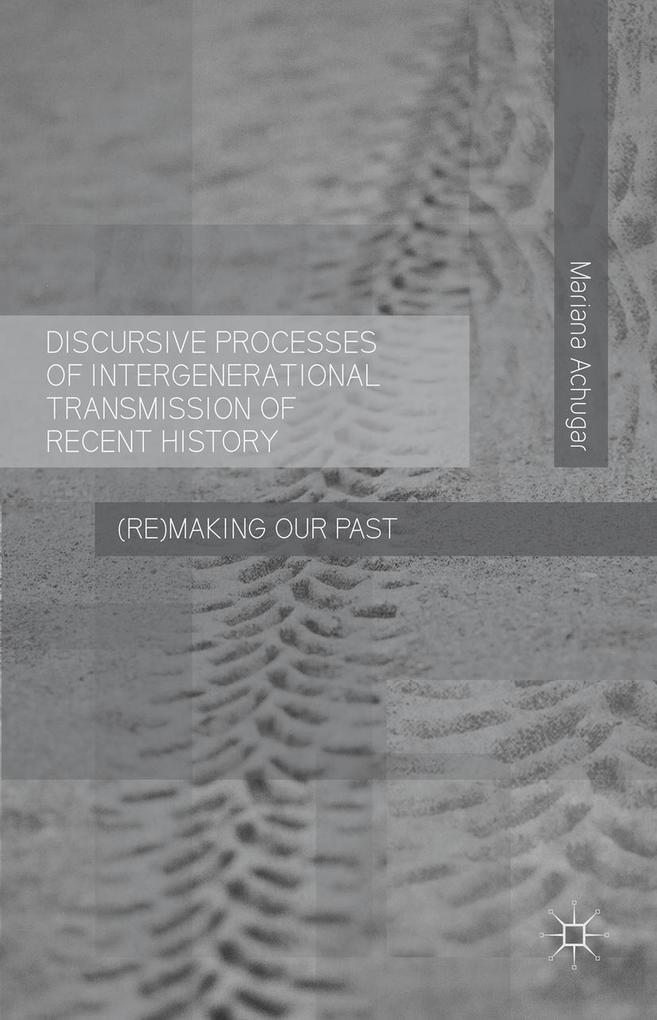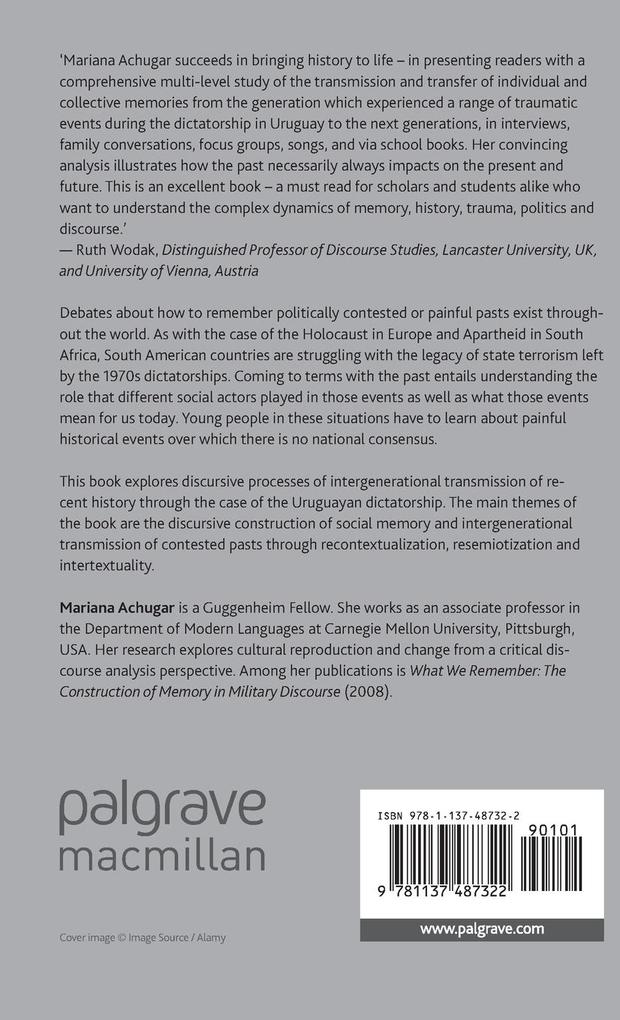
Zustellung: Do, 12.06. - Mo, 16.06.
Versand in 1-2 Wochen
VersandkostenfreiBestellen & in Filiale abholen:
Debates about how to remember politically contested or painful pasts exist throughout the world. As with the case of the Holocaust in Europe and Apartheid in South Africa, South American countries are struggling with the legacy of state terrorism left by the 1970s dictatorships. Coming to terms with the past entails understanding the role different social actors played in those events as well as what those event mean for us today. Young people in these situations have to learn about painful historical events over which there is no national consensus.
This book explores discursive processes of intergenerational transmission of recent history through the case of the Uruguayan dictatorship. The main themes of the book are the discursive construction of social memory and intergenerational transmission of contested pasts through recontextualization, resemiotization and intertextuality.
Inhaltsverzeichnis
1. Intergenerational Transmission, Discourse, and the Recent History
2. Narratives as Transmission Tools: Learning about the Dictatorship in Uruguay
3. Family Conversations about the Dictatorship: Appropriating Anecdotes and Taking an Affective Stance
4. Arguments with Peers: Negotiating the Past in the Present
5. Conversations in the History Classroom: Pedagogical Practices in the Transmission of the Recent Past
6. Transmission Processes in Popular Culture: Recontextualization and Resemiotization in Music
7. Appropriating the Recent Past: Meaning Making Processes through Time
Produktdetails
Erscheinungsdatum
03. Februar 2016
Sprache
englisch
Auflage
1st edition 2016
Seitenanzahl
256
Autor/Autorin
M. Achugar
Verlag/Hersteller
Produktart
gebunden
Abbildungen
XIV, 240 p.
Gewicht
460 g
Größe (L/B/H)
222/145/19 mm
ISBN
9781137487322
Entdecken Sie mehr
Pressestimmen
Postgraduate students and academics working m the areas of Critical Discourse Studies, Memory Studies and Latin American Studies can benefit greatly from this book. It is coherently organized and approaches the issue of remembering from a diverse methodological and theoretical background, having at its core the relation between language as a semiotic System m its social and historical context and the construction of our individual and social memory and identities. (Carolina Perez, Journal of Language and Politics, Vol. 17 (05), 2018)
Bewertungen
0 Bewertungen
Es wurden noch keine Bewertungen abgegeben. Schreiben Sie die erste Bewertung zu "Discursive Processes of Intergenerational Transmission of Recent History" und helfen Sie damit anderen bei der Kaufentscheidung.










